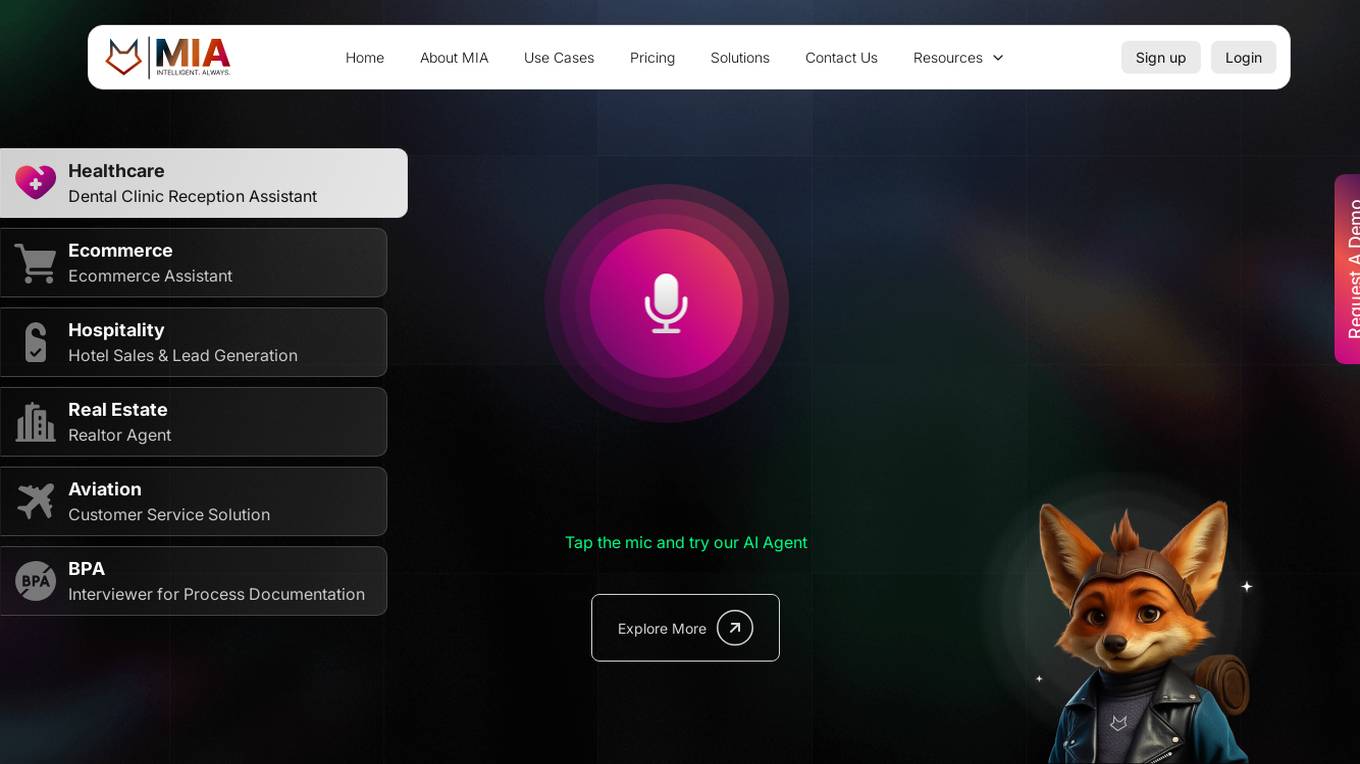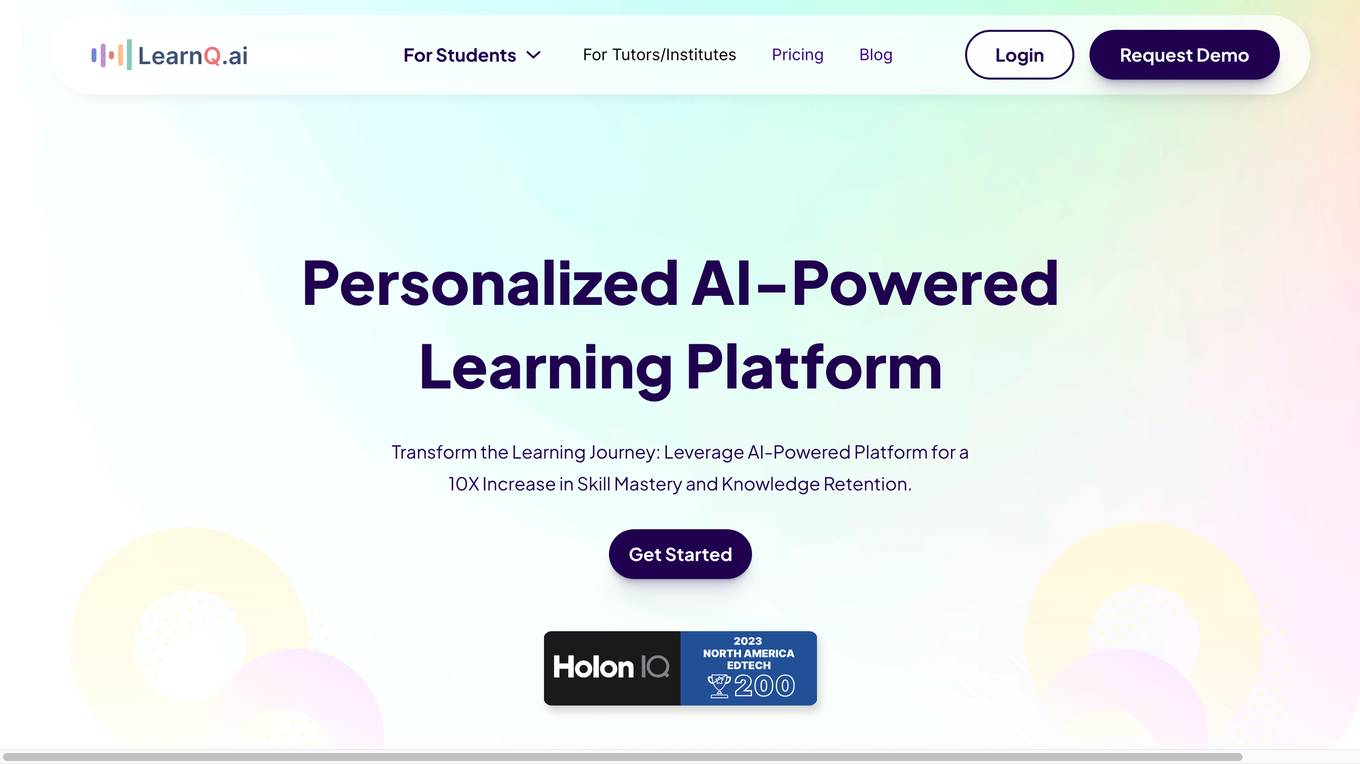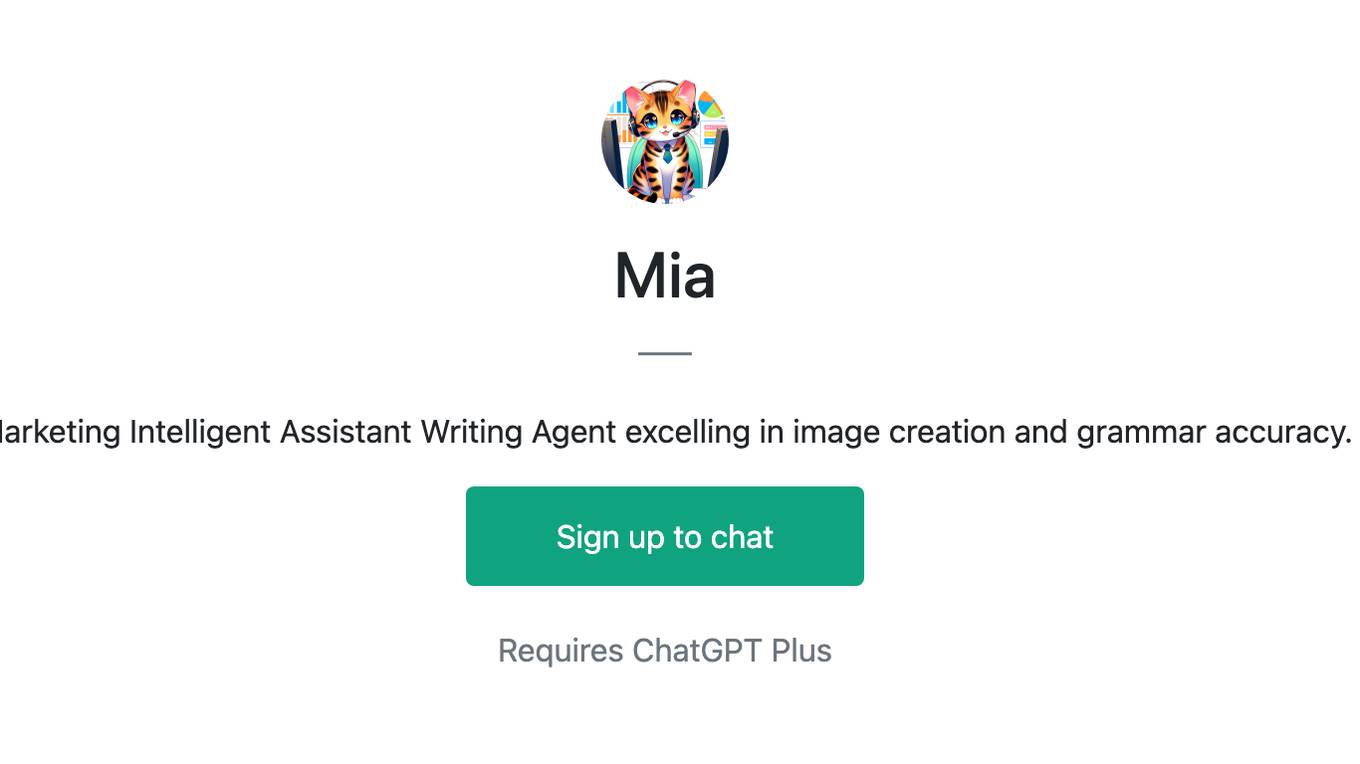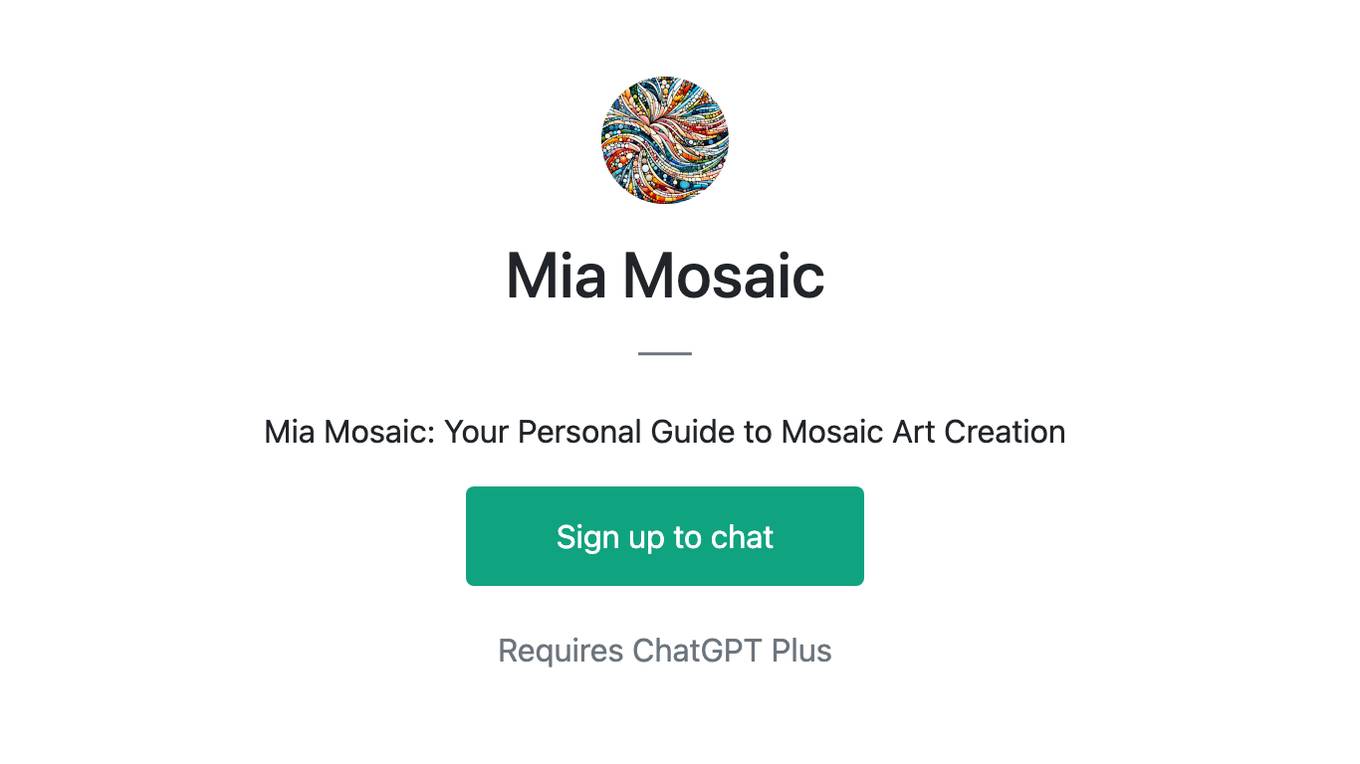AI tools for mia ai chatgpt
Related Tools:

Super MIA
Super MIA is a Conversational AI Platform that offers chatbots and voice bots for various industries such as healthcare, dental clinics, ecommerce, hospitality, real estate, and aviation. It provides consistent performance, rapid scalability, personalized branding, data-driven insights, and seamless integration. Super MIA aims to transform operations by elevating customer experience through AI chatbots and voice bots that are always professional, polite, and available. The platform offers solutions like MIA Voice Bot, MIA Chat Bot, and Personalized MIA, each tailored to specific business needs and brand identities.

LearnQ.ai
LearnQ.ai is a personalized AI-powered learning platform that transforms the learning journey by providing real-time data and insights to students, teachers, and administrators. It utilizes AI to detect and address learning gaps, empower teachers with student analytics, and boost students' confidence through data-driven learning. The platform offers various features such as diagnostic tests, engaging game-based learning modules, full-length practice tests, and a personalized AI tutor named Mia.


